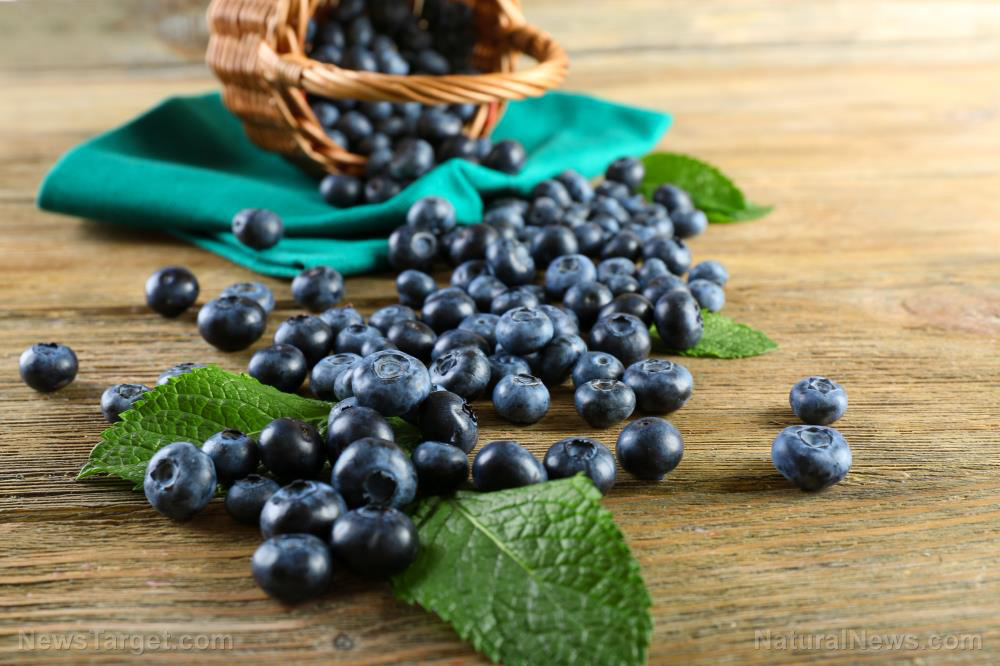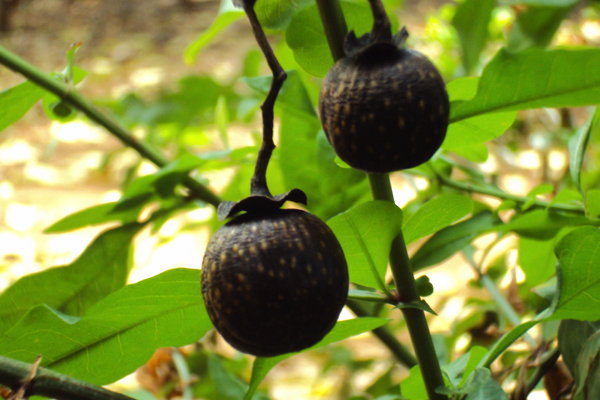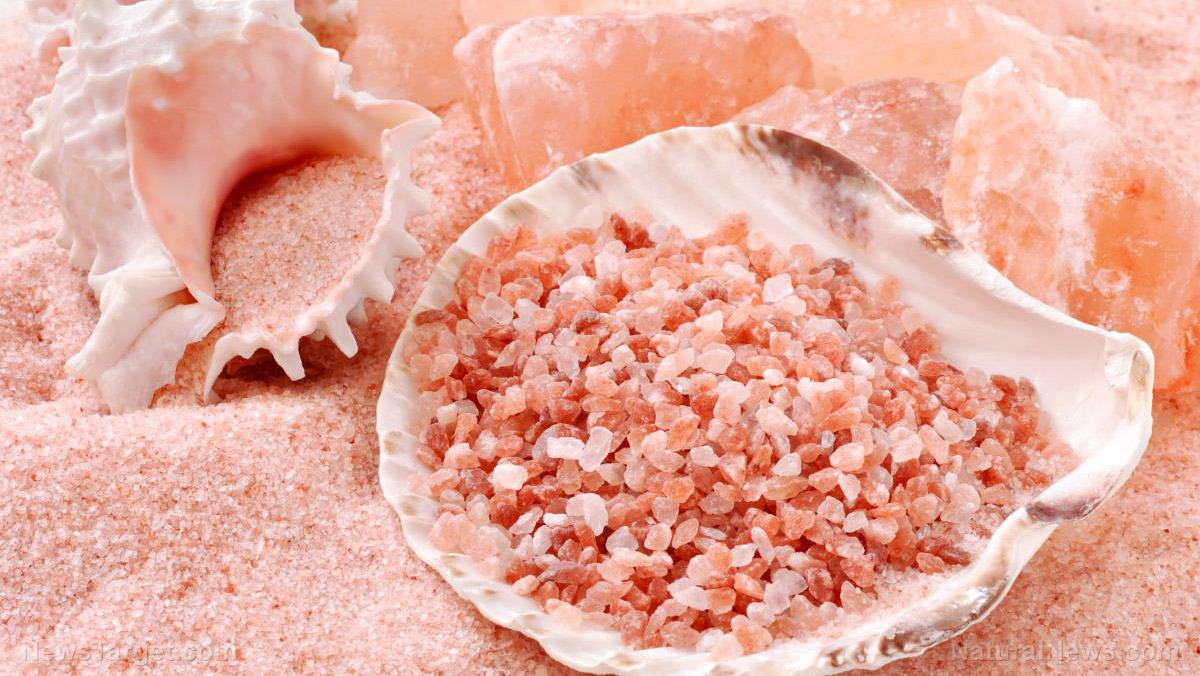Bilberries: The wild blueberry powerhouse of antioxidants and flavor
02/19/2025 / By Zoey Sky

- Bilberries (wild blueberries) are small, deep indigo berries that grow on low shrubs.
- Known for their flavor which is a balanced mix of sweet and tart, bilberries offer a more intense taste compared to cultivated blueberries.
- Historically foraged and consumed for thousands of years, bilberries are native to Europe, Asia and North America.
- Bilberries are rich in bioactive compounds, most notably anthocyanins, which are powerful antioxidants that neutralize free radicals and reduce oxidative stress. The nutrients in bilberries support digestive health, cardiovascular health, bone health and immune function.
- Bilberries are the perfect ingredient for salads, smoothies and jams.
Bilberries (Vaccinium myrtillus L.), often referred to as wild blueberries, are a small but mighty fruit that has captivated health enthusiasts, chefs and herbalists for centuries.
Known by various names across cultures — such as European blueberries, whortleberries, huckleberries or blaeberries —bilberries are a close relative of cultivated blueberries but boast a unique flavor and nutrition profile as well as medicinal properties.
Bilberries, with their round shape and slightly tart, sweet taste, are not only a culinary delight but also a nutrient powerhouse packed with phytonutrients that can support overall health.
The bilberry: A closer look
Bilberries are round, about five to nine millimeters in diameter, and grow on low shrubs. They are easily recognizable by their deep indigo hue, which comes from powerful antioxidant pigments called anthocyanins.
When ripe, the skin of bilberries is smooth and slightly waxy, encasing a juicy, dark purple flesh that can stain fingers and tongues alike.
The flavor of bilberries is a delightful balance of sweet and tart, with a more intense and complex taste compared to cultivated blueberries. Their rich, earthy undertones make them a versatile ingredient in both sweet and savory dishes.
Historical and cultural significance
Bilberries have a rich history that dates back to ancient times. Native to Europe, Asia and North America, these berries have been foraged and consumed for thousands of years.
Historical records suggest that bilberries were used by the ancient Greeks and Romans for their medicinal properties, particularly for digestive and vision-related ailments.
During World War II, British Royal Air Force pilots reportedly consumed bilberry jam to improve their night vision, a testament to the fruit’s long-standing reputation as a vision-enhancing food.
Today, bilberries are primarily found in the wild, thriving in acidic, nutrient-poor soils in temperate and subarctic regions. They are especially abundant in Scandinavian countries, the British Isles and parts of Eastern Europe.
Unlike their cultivated blueberry cousins, bilberries are smaller, darker and more intensely flavored.
Nutritional composition and phytonutrients
Bilberries are celebrated for their exceptional concentration of bioactive compounds, particularly anthocyanins, which are responsible for their vibrant color and many health benefits.
These phytonutrients are potent antioxidants that help neutralize free radicals, reducing oxidative stress and inflammation in the body. (Related: The jackfruit: A superfood source of vitamin C, fiber and other nutrients.)
In addition to anthocyanins, bilberries contain:
- Fiber – Promotes digestive health and satiety
- Flavonoids – Flavonoids such as quercetin and catechins support cardiovascular health
- Manganese – A trace mineral crucial for bone health and metabolism
- Phenolic acids – Includes chlorogenic acid, which is known for its anti-inflammatory and blood sugar-regulating properties
- Vitamin C – An essential nutrient for immune function and skin health
Health benefits and potential therapeutic uses
The nutrient-dense profile of bilberries makes them a valuable ally in preventing and managing a variety of health conditions.
Research has highlighted several key areas where bilberries may offer significant benefits:
- Support cognitive function – Studies suggest that the anti-inflammatory and antioxidant properties of bilberries may protect against neurodegenerative diseases like Alzheimer’s and improve memory and cognitive performance.
- Support healthy vision – Bilberries are best known for their ability to support eye health. The anthocyanins in bilberries can improve blood flow to the retina, enhance night vision and protect against age-related macular degeneration and cataracts.
- Support cardiovascular health – The antioxidants in bilberries can help reduce LDL (low-density lipoprotein) cholesterol levels, improve blood vessel elasticity and lower blood pressure, reducing the risk of heart disease.
- Help with blood sugar regulation – Bilberries have been shown to improve insulin sensitivity and reduce blood sugar spikes, making them a beneficial addition to the diets of individuals with Type 2 diabetes or metabolic syndrome.
- Boost skin health – The high levels of antioxidants and vitamin C in bilberries promote collagen production, protect against UV damage and improve skin elasticity, contributing to a youthful complexion.
- Have anti-inflammatory effects – The compounds in bilberries help reduce chronic inflammation, which is linked to conditions such as arthritis, inflammatory bowel disease and even certain cancers.
Culinary applications and recipe ideas
Bilberries’ unique flavor and nutritional benefits make them a versatile ingredient in sweet and savory dishes. Their tartness pairs well with creamy or rich ingredients, while their natural sweetness can enhance desserts and beverages.
Here are some recipe ideas that showcase bilberries:
- Bilberry salad – Toss fresh bilberries with mixed greens, goat cheese, walnuts and a balsamic vinaigrette for a vibrant and nutritious salad.
- Bilberry smoothie bowl – Blend frozen bilberries with Greek yogurt, a splash of almond milk and a drizzle of honey. Top with granola, chia seeds and fresh mint for a refreshing breakfast smoothie bowl.
- Bilberry compote – Simmer bilberries with a touch of sugar, lemon juice and cinnamon to create a versatile topping for pancakes, oatmeal or ice cream.
- Bilberry jam – Preserve the flavor of bilberries by making a homemade jam that’s perfect for spreading on toast or scones.
- Bilberry tart – Use bilberries as the star ingredient in a classic French tart, combining them with a buttery crust and a creamy custard filling.
Bilberries are a delicious fruit that is also a testament to the power of nature in promoting health and wellness. Whether enjoyed fresh, cooked or as part of a supplement, these wild blueberries offer a simple yet profound way to nourish the body and delight the senses.
This story is not medical advice and is not intended to treat or cure any disease. Always consult with a qualified naturopathic physician for personalized advice about your specific health situation or concern.
Visit NaturalNews.com, a great article source where you can learn about superfoods and their health benefits.
Try Brighteon.ai, an AI model created by Mike Adams, also known as the Health Ranger. This model is available as a free download to be run locally and is designed to help share and decentralize knowledge. By doing so, it aims to bypass censorship and empower people with knowledge.
If you’re looking for an uncensored video free speech website where you can openly discuss nutrition, natural medicine, ingredients and more, go to Brighteon.com.
Brighteon.IO and Brighteon.social are two free speech social media sites that enable users to openly discuss health, nutrition, ingredients, toxicity and related topics without censorship.
Watch the video below to learn more about Organic Cranberries, another type of berry that supports good health.
This video is from the Health Ranger Store channel on Brighteon.com.
More related stories:
The mighty guava: A superfruit of tropical delights and health benefits.
Small but powerful: Garcinia, a tropical superfruit that offers plenty of health benefits.
The eggfruit (canistel): A tropical superfood with a rich history and remarkable health benefits.
Sources include:
Submit a correction >>
Tagged Under:
anti-inflammatory, antioxidants, bilberry, food cures, food is medicine, food science, fruits, health science, natural cures, natural health, natural medicine, nutrients, organics, phytonutrients, prevention, wild blueberry
This article may contain statements that reflect the opinion of the author





















